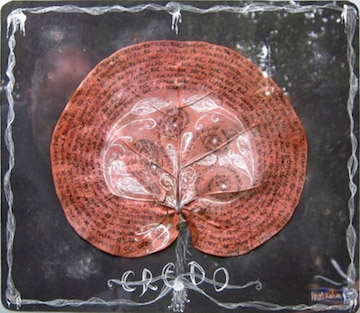This is the story of olive oil from Palestine and Zatoun, a Canadian grass roots organization founded by Robert Massoud in 2003 to support Palestinian farmers in the West Bank by promoting and selling their olive oil in North America for fair trade prices.
I first spoke with Robert Massoud in 2008 and am most unhappy to report that nothing good has happened to Palestine’s olive trees since then.
The Israeli Occupation of Palestine land is an enemy of the olive tree and the olive farmer not only because of the degraded circumstances under which growing, picking and pressing take place but because of Israel’s ongoing policy of uprooting the olive trees, one of the many catastrophic weapons of occupation.
The degradation of oil production has had severe implications for the Palestinian economy. Attacks on agricultural land and the harassment of farmers have reduced the quality and quantity of oil production. Not being able to care for or tend the trees in the months prior to harvest affects yield quantity and quality. After picking, the damaging presence of the Occupation affects how olives are stored and transported, how long they are kept before pressing, the quality of the olive pressing process and how long the oil is stored after pressing. Farmers are working under severe limitations during each of these steps in the process.
Ben Lorber, reporting in the Palestine Chronicle on November 7, 2011, writes that: “The 2011 olive harvest, which began in early October, has seen a troubling rise in settler attacks. On October 20, OXFAM reported that Israeli settlers have already cost West Bank Palestinian farmers $500,000 this year in destroyed olive trees. In September alone, 2,500 olive trees were destroyed, out of 7,500 destroyed so far this year (and a conservative estimate of 800,000 destroyed since Israel’s annexation of the West Bank in 1967). This is particularly damaging because this year’s olive harvest is expected to yield only half of the oil of last year’s harvest, making each tree all the more valuable to the farmers.”
If the past is any indication of the future, It is very difficult to be optimistic: Israeli settlers have become a greater source of destruction and intimidation in recent years, attacking farmers during the harvest and destroying the trees throughout the year. When building of the separation wall is completed, a further one million trees will be trapped between the wall and the Green Line, making them inaccessible to the farmers. And we point out, this economic loss to farmers is not a unique, one-time event but an ongoing erosion, one that is repeated year after year.
“There are untold costs to the Occupation,” Robert Massoud tells me in an email, “and they will never come close to being fully known. Too many interests are vested in hidden reality and hidden history. That we have any Zatoun olive oil in North America and that it is as good as it is, is a miracle.”
This interview was broadcast on WPKN 89.5 fm Bridgeport on November 30, 2011.

